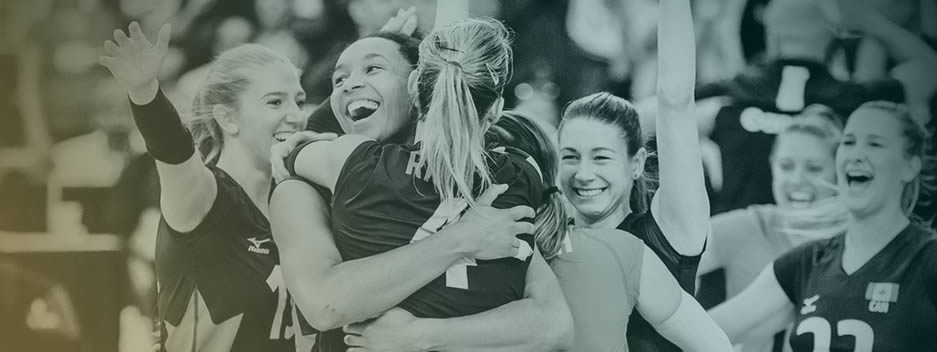How do You Learn to be a Better Coach?
- October 17th, 2018
- Tom Bean

Change - 'An act or process through which something becomes different.' The simplest way to perceive coaching is to inspire change in your athletes to improve performance.
Knowing how to make a difference is an art. There are numerous ways to learn the technical sides of sport, be it through badges or online resources like Sportplan. This teaches you the science of coaching, the intellectual properties that give you the foundations to make change; an undoubted necessity when coaching.
Yet how do you use this to change your athlete(s)? The artistry of coaching comes from how you creatively impart this knowledge. For me, this is where the real learning is to be done and where successful coaches differentiate themselves.
What does a coach do?
Before understanding how to become a better coach, we need to understand the full role of a coach. We've already outlined it in its simplest form but when broken down, there are actually numerous aspects beneath the technical knowledge. A successful coach must look to grasp all of these aspects:
- The technical knowledge - getting the team to play in a specific style and to develop technical ability and understanding.
- Understanding your athletes - their level of performance, commitment and overall goal will determine how you implement your ideas. You don't coach a social netball player who trains once a week in the same way you coach a Super League player pursuing an international call up.
- Engaging your athletes - implementing your technical ideas successfully requires your players to be engaged, to be excited to learn and change.
- Communicating effectively - deal with selection headaches, acknowledge personal issues and deliver your ideas comprehensively.
Learning to become a successful coach clearly requires an ability to work with people to draw the best from their potential. The technical knowledge, the science of coaching, is the tip of the iceberg that you only see once all the other aspects of the role have been considered.
How do you learn the art of coaching?
Observe, talk, listen and fail.
- Learn from past coaches - As a player before a coach, I observed and listened to previous coaches and spoke with fellow players to understand what manifests a successful coach and to recognise areas where coaches could improve.
Beyond picking up technical knowledge and training inspiration, the most valuable aspect I learnt was how to communicate with athletes. Being a player first gives you a fantastic insight into what players respond to and what they don't like. - Learn by coaching - Taking over as coach for a ladies hockey team put me on a steep learning curve. With previous experiences of being in a men's teams, I thought I knew how to get the most from the players I was now coaching.
Having played at a higher level and with contrasting motivations, it took time to recognise the players incentives and I had to readjust my approach to fully engage them. I only learnt this by being on the job, as I did with many aspects of coaching. - Learn by failing - Failure is part of the role and learning from it is vital. After a string of good displays, my team lost narrowly in a game against the eventual runaway champions. The team had not performed well and post-game, I tried to say that even though we had not played to our potential, we still competed and came close to winning.
Although meant as a positive to illustrate what we could have done if we had played to our potential, I'd clearly not communicated this effectively, nor had I understood the players well enough. Subsequently, I learnt that I'd upset some members of the team and I had instigated a negative reaction from the players with a misguided comment. As a result, I learnt how to communicate my point more productively in the future.
A player and a coach are learning as a collective and should always be striving to improve however big their goals. Coaching is all about continuous improvement, if you want your athletes to get better, you need to be getting better with them.
Why do we need to learn?
In the 2000's, England football went through their golden generation as consistent under-achievers. As a collection of world-class players who were expected to win major trophies, they were led by coaches insistent on strict regimes. They were hyped up every two years by the 'this is our year' brigade, yet an anticipated trophy never came and England continued to endure 'years of hurt'.
The debate as to why they failed to meet expectations extends far beyond the constraints of this piece (and beyond my enthusiasm to discuss the Lampard-Gerrard midfield enigma again!).
However, in 2018 England saw a shift in leadership. In Gareth Southgate, there was a coach who understood his players and their motivations; he recognised how to engage them effectively and communicated his plans with the press and players throughout. He made the England camp fun and exciting again.
Consequentially, by learning from his experiences as a player, by observing previous coaching regimes fail and by learning on the job as the England Under-21's coach, Southgate was able to implement his technical knowledge with extraordinary results. Such was the way that he had learned and developed the art of coaching, the team realised their potential and reached an unexpected semi-final, their joint-best finish since 1966.
Developing a better technique will improve performance; that's proven by science. The art of coaching is how you implement the science effectively. Learn from the past, learn on job and learn from mistakes to start to inspire change in your own athletes performance.